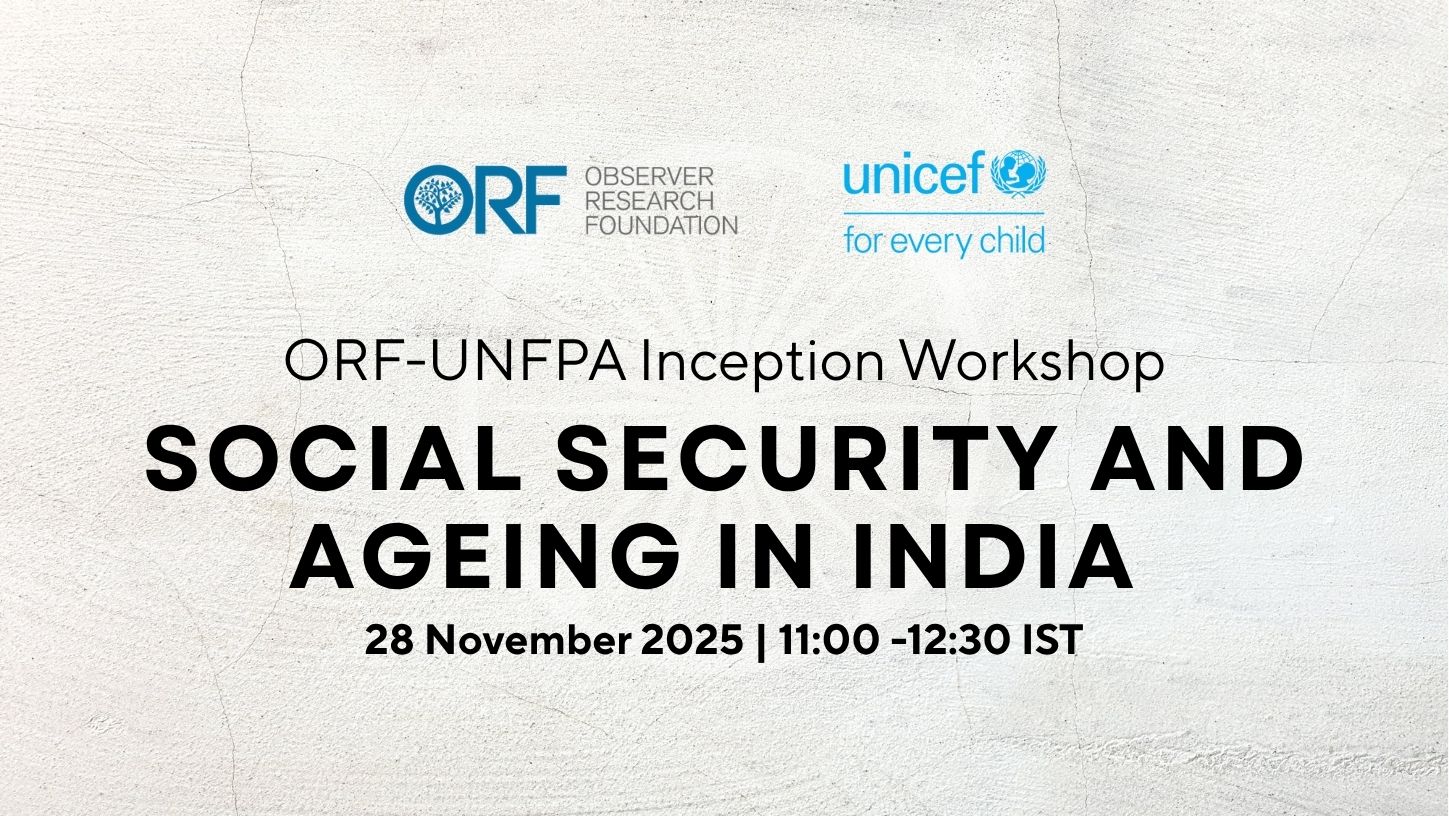-
CENTRES
Progammes & Centres
Location
India’s research ecosystem is gaining momentum, but it is still highly concentrated. Anusandhan National Research Foundation’s success depends on whether it can democratise innovation – not just fund it. ...
India’s 7.8% Q1 GDP growth withstands scepticism—sectoral trends and real indicators show momentum beyond mere statistical optics. ...
IRCTC’s Aadhaar mandate for Tatkal tickets aims to curb fraud, but without legal backing, it risks overreach and new hurdles for passengers. ...
India must expand the PLI scheme as a nation-building strategy that drives exports, high-skill jobs, and global manufacturing competitiveness ...
The introduction of the Constitution new bill appears to be a well-intentioned effort however, risks undermining due process and democracy ...
The PM-eBus Sewa Scheme blends financial innovation with sustainability to accelerate India’s shift towards cleaner, inclusive, and resilient urban mobility. ...
Streamlining GST into fewer slabs promises relief for households, clarity for businesses, and a renewed push for India’s consumption-led growth. ...
India’s open-book exam initiative is not a silver bullet to move away from rote learning, but if carefully phased, it can catalyse a shift toward deeper learning ...
Can a flexible, multi-tier oversight system work better than a top-down, court-led authority in protecting parents from arbitrary fee hikes while keeping schools financially healthy? ...
Nature-based Solutions are emerging as a promising approach to rejuvenate waterbodies, which face degradation of the water quality and ecological integrity ...
Odisha’s pioneering Urban Sanitation Policy (2017)demonstrated how a decentralised, inclusive, and resilient sanitation model can transform urban environments. ...
The 2026 UN Water Conference could provide an impetus to South Asia’s water cooperation if it addresses the region’s unique challenges ...
India’s water-intensive exports fuel trade gains but heighten regional pressures, challenging sustainability and cross-border water governance. ...
When water challenges defy quick fixes, hydrocracies must shift—embracing collaboration, local knowledge, and smarter governance. ...
With climate change straining shared water reserves, India’s cities and farms are on a collision course unless conservation, reuse, and technology drive urgent reforms. ...
India must urgently shift to climate-resilient, integrated water governance to tackle worsening scarcity, floods, and institutional fragmentation ...
As climate-driven extreme events are on the rise, Indian cities must adopt sustainable and adaptive water management to tackle them ...
High water losses are widening the supply gap, forcing costly and unsustainable fixes across Global South cities. ...
India’s Namami Gange shows how agile policies and institutions can accelerate river rejuvenation, offering lessons for all interstate rivers. ...
Natural Springs are essential but neglected lifelines for urban water security in mountain cities. Reimagining them as urban water commons offers a path toward city resilience in a climate-challenged future. ...
As climate change intensifies risks along the world’s coastlines, inclusive approaches to water governance and the blue economy are essential for building resilient coastal cities that safeguard both livelihoods and ecosystems. ...
The arsenic crisis underscores the need to move beyond pipes and pumps toward a people-centred approach where safety, transparency, and community participation define India’s water security. ...
Endocrine-disrupting chemicals are slipping from sewage, through treatment plants, into India’s taps, threatening public health while regulations lag behind. ...
From treatment plant to household, Hyderabad’s water supply faces recontamination—posing major health risks for thousands in low-income areas. ...
India can pursue the trinity of efficiency, equity, and sustainability by combining socialist-era equity, liberalisation’s efficiency, and climate-era ecological sensibilities ...
As global labour markets and technology disrupt traditional pathways to success, can India ensure that every youth truly benefits from 21st-century skill development? ...

Rear Admiral K. Raja Menon (Retd) is a career naval officer and submarine specialist who commanded seven ships and submarines during his service. He retired in 1994 as the Assistant Chief of Naval Staff (Operations). ...
Read More +
S. Paul Kapur is currently on leave from ORF and is serving as Assistant Secretary of State for South and Central Asian Affairs at the U.S. Department of State. Between 2020-2021, Mr Kapur served on the State Department’s Policy Planning Staff, ...
Read More +
